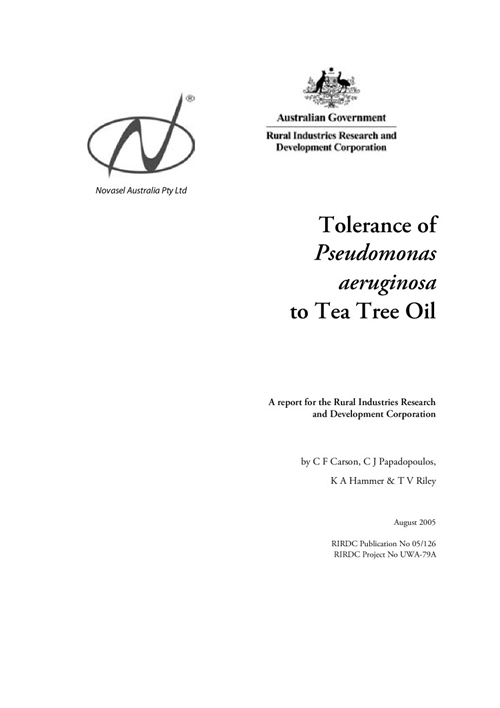AgriFutures Tea Tree Oil Program RD&E Snapshot
Message from the Research Manager, Stephen Taylor As we head into a new research, development and extension (RD&E) period for the AgriFutures Tea Tree Oil...
 TEA TREE OIL
TEA TREE OIL 
52 pages
Published: 1 Aug 2005
Author(s): Carson, C F, Papadopoulos, C J, Hammer, K A, V, T
Download report PDF
DownloadPurchase a hard copy - AUD $45.00
Tea tree oil (TTO) is a popular, alternative antimicrobial agent and many clinically relevant microorganisms such as Escherichia coli, Staphylococcus aureus and Streptococcus spp. are susceptible. The increased use of tea tree oil (TTO) raises the possibility that resistance to it may develop. Pseudomonas aeruginosa exhibits reduced susceptibility to a wide range of conventional antibiotics and to TTO. Examination of the mechanisms responsible for the reduced susceptibility is likely to indicate whether other bacteria may develop similar tolerance and/or resistance. This is an important question, particularly if TTO is to be used as an alternative topical antimicrobial agent. This report discusses data obtained on the activity of TTO against Pseudomonas spp., including in vitro susceptibility data and time kill studies, as well as the induction of increased tolerance to TTO and terpinen-4-ol in P. aeruginosa. The likelihood of resistance to TTO emerging is a question often raised by health professionals. This study has demonstrated that it is unlikely that resistance to TTO would develop in P. aeruginosa following long-term continuous exposure, with the development of resistance in other species of bacteria even less likely to occur.